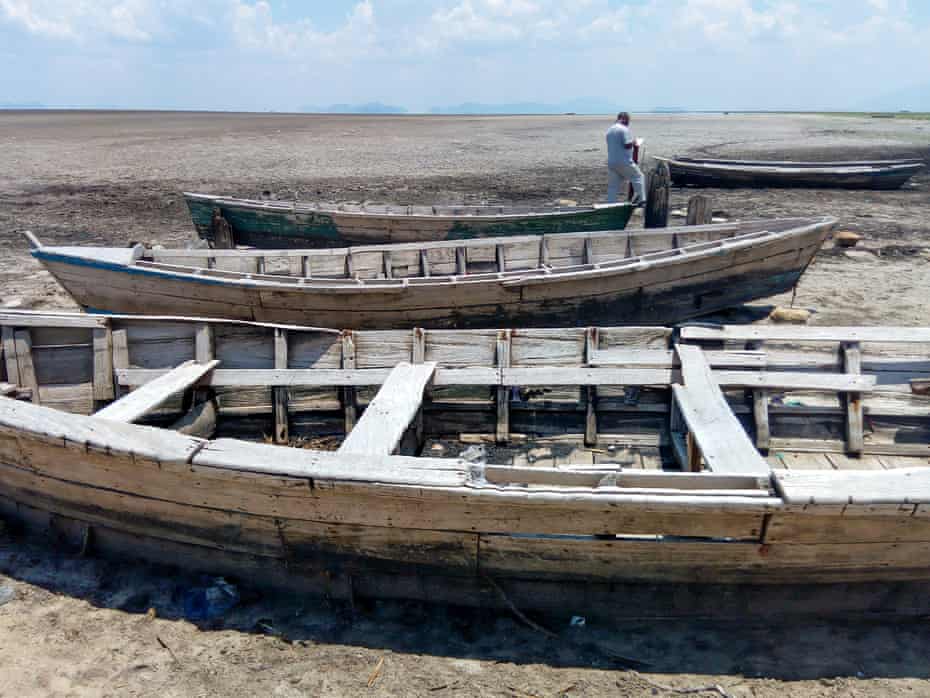
The livelihoods of 1.5 million people are at risk as the lake’s occasional dry spells occur ever more frequently
All photographs by Dennis Lupenga/WaterAid
“Many fishermen were forced to scramble for land near the lake banks, while others had to migrate to the city,” says Alfred Samuel. “We could barely feed our children because the lake could not provide enough fish, or water for rice growing.”
The 52-year-old from Zomba district has fished the lake since the 1980s and is used to fluctuating water levels. But the weather has become increasingly unpredictable, threatening the livelihoods of more than 1.5 million people across the three districts that depend on Malawi’s second-biggest lake.
When the missionary and explorer David Livingstone reached the lake in 1859, he reported it being 60 to 80 miles long, or roughly twice the length of today.
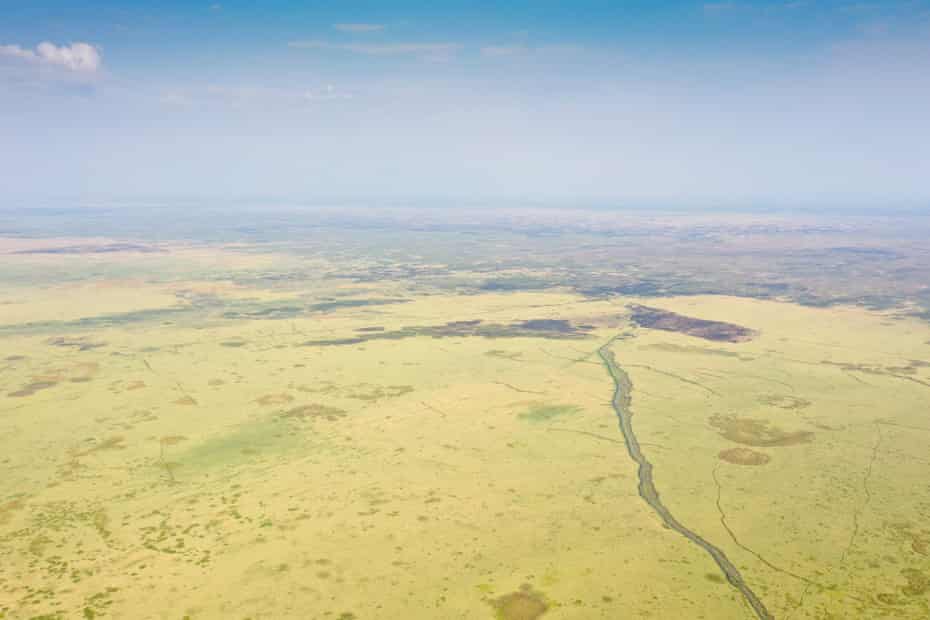
An aerial view of the bed of Lake Chilwa, now covered in grass, last October
Friday Njaya, Malawi’s assistant director of fisheries, says that as water levels vary by season, the lake can cover more than 2,000 sq km (775 sq miles) during the rains. But recent years have seen it contract to less than 1,200 sq km.
In 2018 the lake shrank by about 60%, forcing most of those fishing on it to relocate to Lake Malawi to sustain themselves. There are fears that the trend could be repeated this year as the Lake Chilwa basin received less than 1,000mm of rain this season. The lake requires more than a metre of rain across the basin every year to sustain water levels.
The unreliable rainfall patterns are, according to experts, the result of human activity, especially deforestation, which plays such a critical role in environmental degradation and the climate crisis.
Njaya says that in terms of fishing, and cultivating rice and maize along its shores, the productive value of the lake should be about $17m (£12m) a year, but that has now fallen to about $5m.
Samuel, who has six children, fishes the lake and grows rice. Before 2012, he made 40,000 Malawian kwacha (£36) a day from fish sales and slightly more than 1.2m kwacha a year from rice. But now, fish sales bring in only 5,000 kwacha a day, while his rice fetches 570,000 kwacha a year.
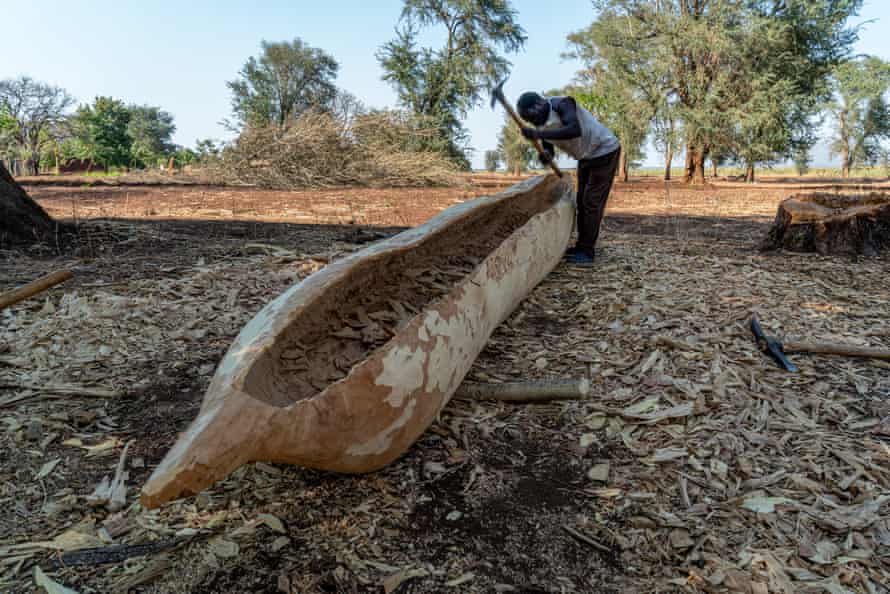
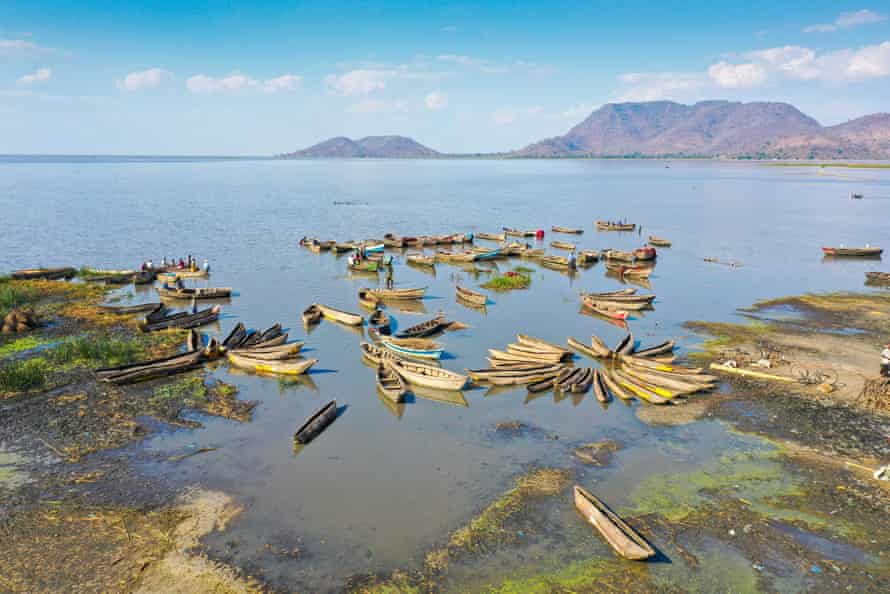
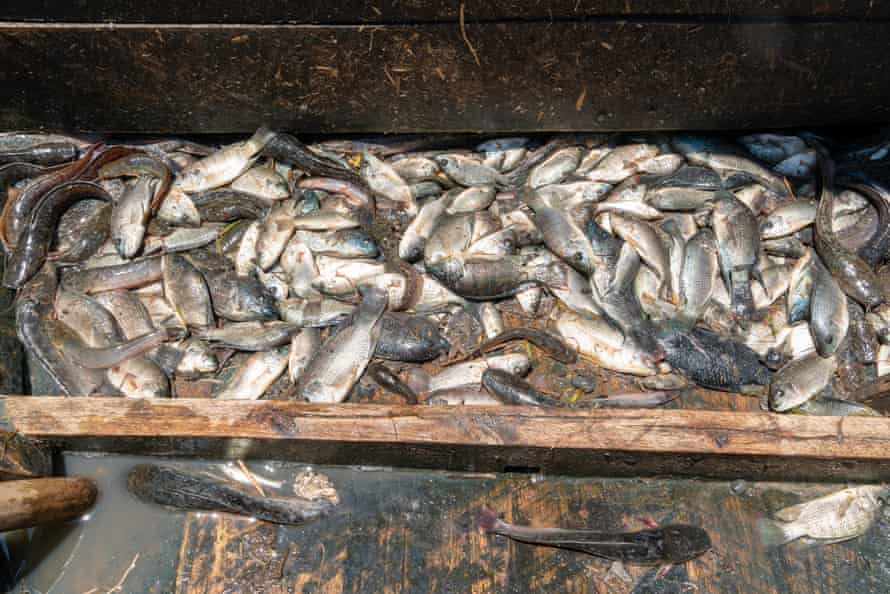
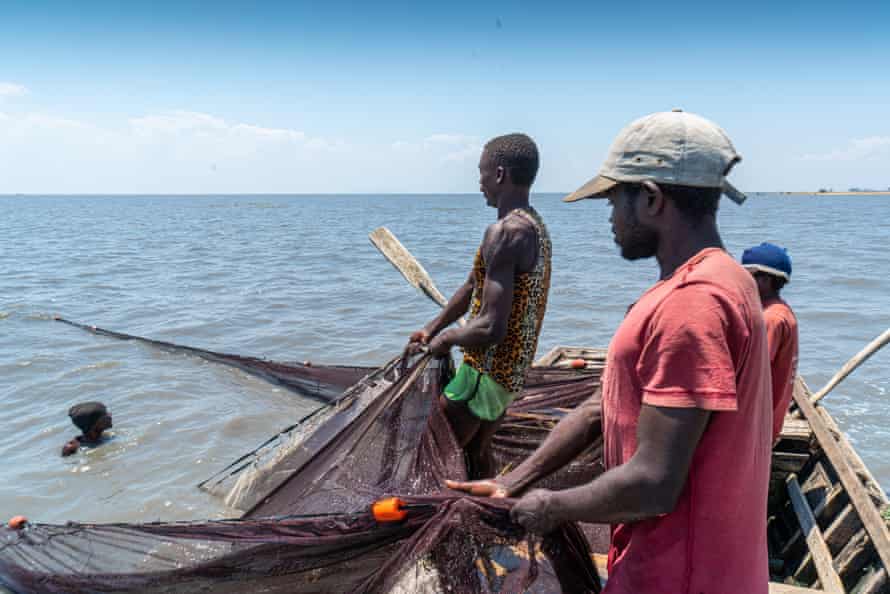
Clockwise from top left: White Lagwani, 60, who fishes and makes traditional dugout canoes, at work on Lake Chilwa’s Chisi Island; canoes moored at Kuchenga, Chisi Island; fishing on Lake Chilwa; Samson Maliko’s meagre catch. ‘Climate change has affected us greatly,’ he says
Samuel says: “I now only catch enough fish for my family and my fears are that if the changing climate patterns are not reversed, the lake might completely dry up in the near future.”
“Fishing has been getting hard. We are trying to engage in other activities, like basket weaving and hunting birds, but we still cannot make ends meet as the bird population has also been affected.”
Daniel Chiwalo also fishes in the lake and says his catch has fallen by half since 2012. “If we are struggling to feed our children because of the current economic conditions, I don’t know what the future holds for us in terms of the climate situation,” he says.
Prof Sosten Chiotha, regional director at Leadership for Environment and Development Southern and Eastern Africa, says the lake is drying out more frequently as the climate crisis causes more extreme weather.
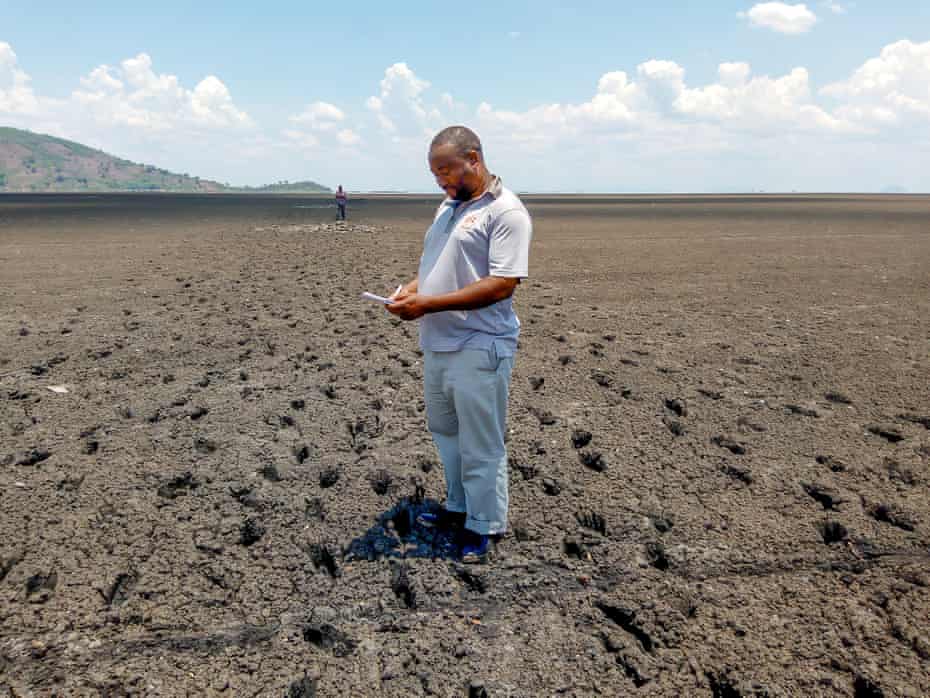
Prof Chiotha taking samples from the dry bed of Lake Chilwa, off Chisi Island, in 2018
“Climate change has introduced extremity in weather. We are having more dry spells and that is why the lake seems to be drying more frequently than it used to in the past,” he says.
“If you compare the previous drying-out years, it was 2018, before that it was 2012, 1996, and 1973 or thereabouts – before that, it was in the 1940s. It was a 25 to 40-year natural drying cycle. But now, recession of Lake Chilwa happens every three to five years.”
Nickson Kamete Masi, Zomba’s senior fisheries officer, says bad farming practices are also taking their toll in the region.
“Some people grow their crops on the lake’s shoreline and on riverbanks that feed into the lake, in the process cutting reeds and other plants that prevent soil erosion and siltation of the lake,” he says.
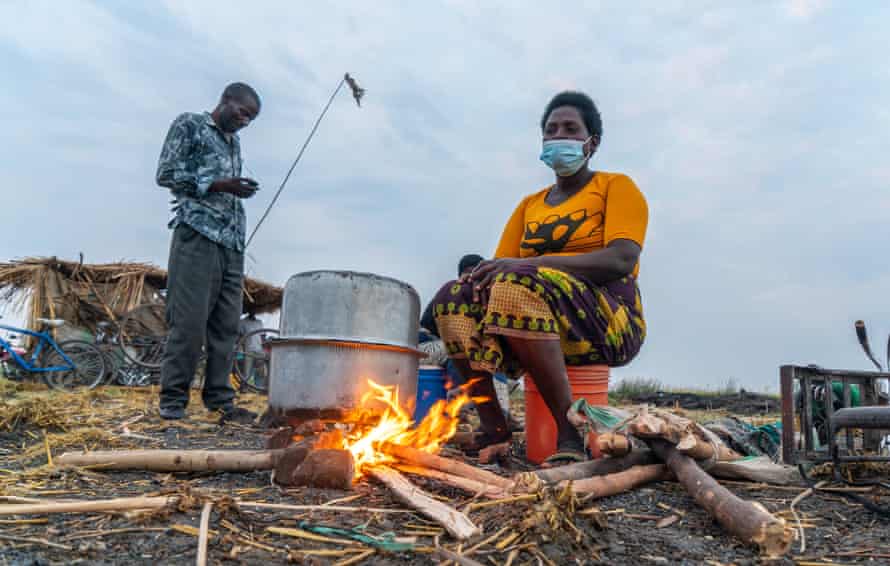
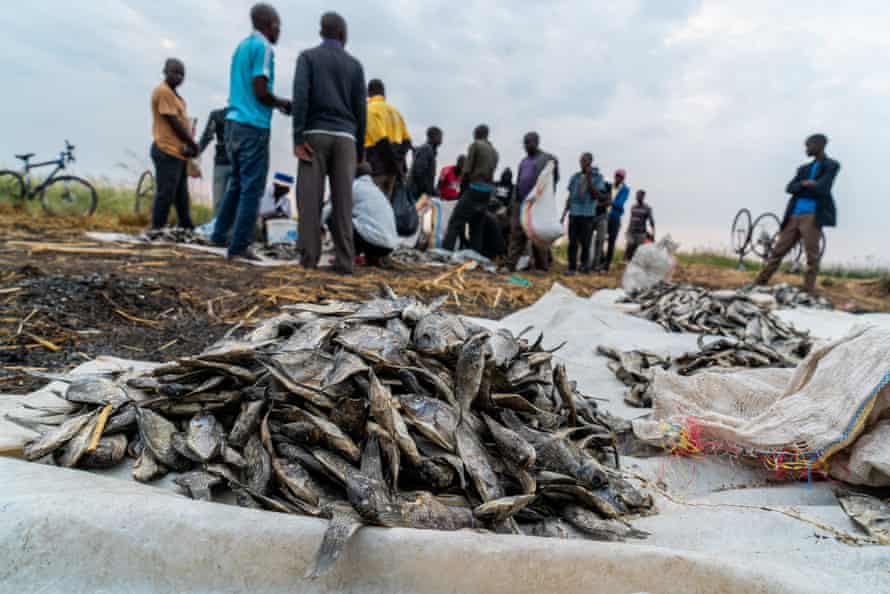

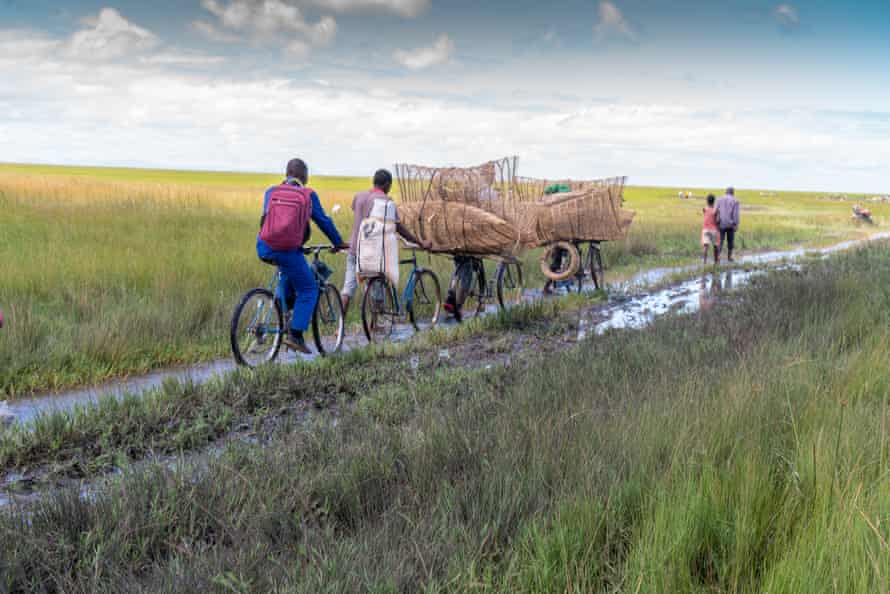
Clockwise from top left, Belita Fenek cooks rice porridge at Ntila market, on the northern shores of Lake Chilwa; dried fish on sale at the market; traders and customers make their way to the market across the bed of Lake Chilwa during the rainy season; Fenek on her way back from the market. She leaves home at 3am and cycles for three hours to sell her rice porridge but she says: ‘There have been fewer customers year after year’
Alufeyo Mwalomo, a conservationist, says cutting down trees has particularly affected rice cultivation.
“Rice growing does not have a direct impact on the dwindling water levels on Lake Chilwa, but we have cut a lot of trees along the rivers that feed into the lake and it affects us economically and socially,” he says.
But, according to Samuel, projects designed to encourage farmers to change their methods – such as the Lake Chilwa Basin Climate Change Adaptation Programme – have not had a lasting impact.
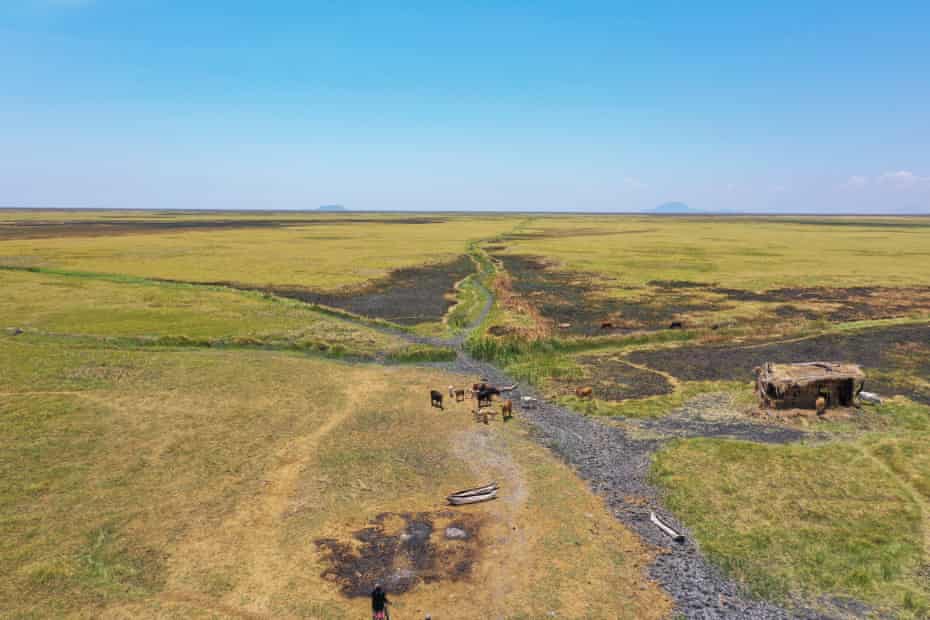
Livestock graze by abandoned canoes on the dry bed of Lake Chilwa last October
Chiotha, who was involved in the programme, says the projects built resilience among communities and ecosystems by encouraging tree planting and better farming practices, such as shallow wells for irrigation and not planting too close to the shore.
Samuel claims that many farmers still believe moving their crops will affect quality.
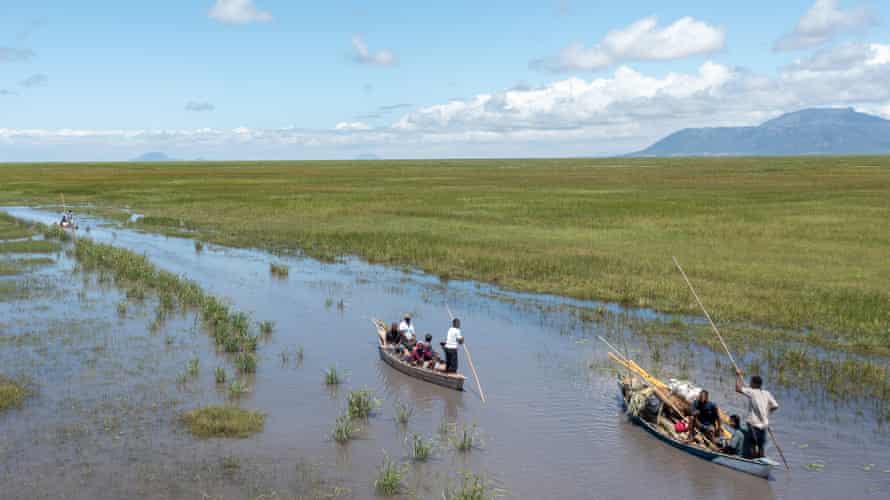
Ferrying people across the northern end of Lake Chilwa in March this year. Despite it being the rainy season, water levels remain low
N’kagula of Zomba, a traditional leader, says farmers are getting poorer as declining water levels have left them struggling.
“We live in a society where everything is changing,” he says. “We have to accept that climate change is real and we are equally responsible for what is happening. Let’s just be responsible.”
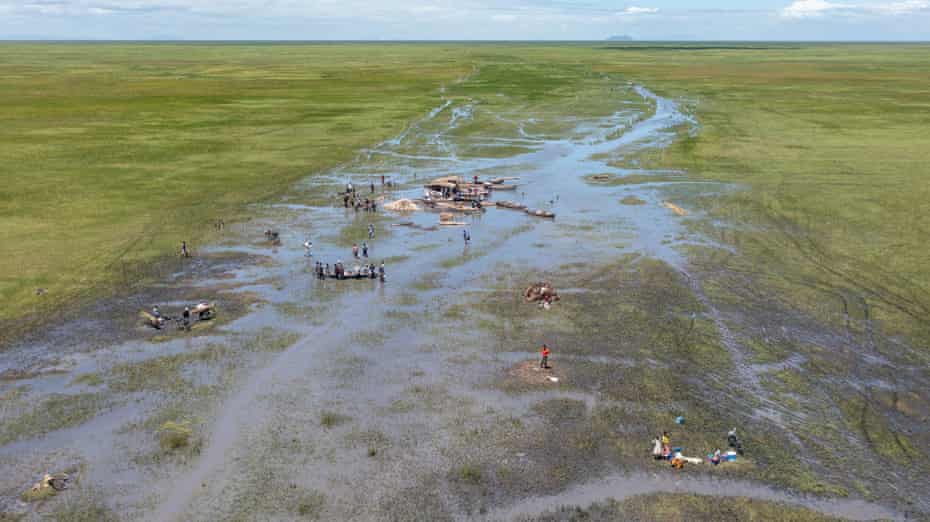
Ntila market on Lake Chilwa during the rainy season in March this year, when water levels should be much higher


No comments:
Post a Comment